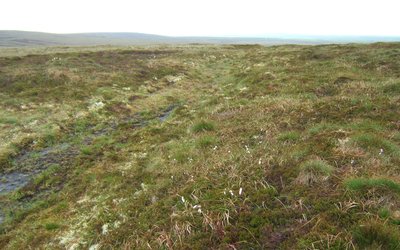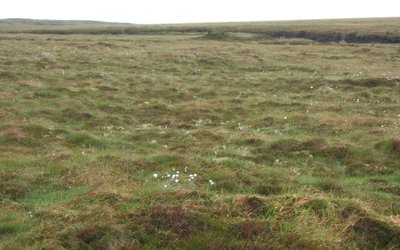Forest productivity in Western Europe is now declining, likely because of climate change
May 1, 2025

In France, as in most of Europe, forest productivity has increased over the 20th century. Warmer temperatures and a lengthening of the growing season over the 20th century have increased the productivity of temperate forests worldwide. However, things may change as climate change continues. Recent studies have shown increasingly negative effects of temperature on forest productivity via increased water demand in warmer conditions.
Case study France
Scientists studied productivity of more than 100 tree species in forests throughout France from 1978 to 2023 and concluded that a turning point has indeed been reached. According to their research, forests are now declining throughout France because of higher temperatures and drier growing seasons. Their data are representative of climatic zones and forest types in a large part of Europe including dry Mediterranean, cold semi-continental, and mountains.
4 million trees
This study was based on data of French forests spanning 44 years and covering more than 100 tree species. The scientists who carried out this study calculated mean growing stock and annual tree productivity. Forest growing stock was quantified from the stem volume of the living trees by measuring their height and the circumference at breast height. They did so for around 4 million trees over the period 1978–2023. They quantified the productivity of trees as the annual stem volume increment by taking cores from the trees and quantifying radial growth of the last 5 fully formed tree rings.
Turning point
From 1978 to 2023, growing stocks have increased in almost all forest regions of France. However, in about half of these regions a turning point in productivity rate was found: a reversal of the trend from an increase to a decrease in productivity. The turning point was on average located at the mid-1990s. The turning point was reached earlier in the forest regions located in the south and west of France characterized by an oceanic climate and later for the forest regions in the north and east of France characterized by a semi-continental climate. In most other regions, there was a linear decline in productivity from 1978 to 2023.
The effects of climate warming – including water availability limitation – on forest productivity are markedly more negative in regions of Mediterranean southern France and less pronounced, or even insignificant, in northern France.
Implications for Europe
The authors of this study stress the importance of their findings for Europe as a whole. Their data cover all observed tree species and forest stands from most climate types in Europe. Therefore, they conclude, these findings are “evidence that the productivity of European forest, after a period of increase in the 20th century, is currently declining across broad latitudinal gradients”. The future contribution of forests in sequestrating CO2 emissions might decline, they conclude.
Source: Hertzog et al., 2025. Turning point in the productivity of western European forests associated with a climate change footprint. Science of the Total Environment 967: 178843.








